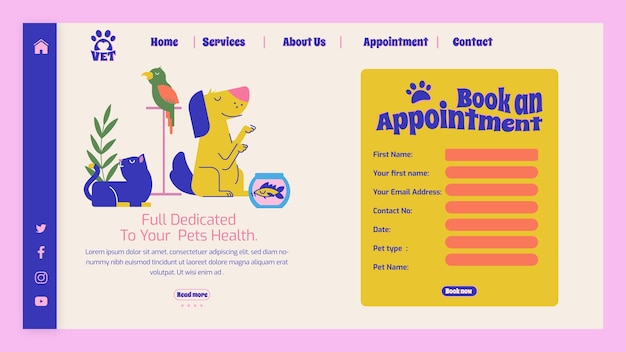Helping Pets Stay Comfortable in Extreme Texas Heat


Helping Pets Stay Comfortable in Extreme Texas Heat
When the Texas sun blazes overhead and temperatures soar through August, pet owners across Northlake and surrounding communities face the annual challenge of keeping their furry companions safe and comfortable. At Canyon Falls Veterinary Hospital, we understand how the harsh summer climate can place extra stress on your pets. Whether you are walking your dog through the neighborhood or your cat is lounging by the window, the risk of heat-related discomfort or illness is real. In this blog, we will share practical tips on how to keep pets cool in summer, explain the signs of heat stress, and offer insights into preventive pet care in Texas heat. Our goal is to help you make informed decisions to protect your pets and ensure their comfort during the hottest months. If you ever have concerns about your pet’s well-being, our veterinary team in Northlake, TX is here to support you with quality veterinary services near me and comprehensive care. For those interested in routine wellness support, our wellness and preventive care exams are designed to help keep pets healthy and comfortable year-round.
Recognizing Signs of Heat Stress in Pets
Texas summers are known for relentless heat and humidity, which can quickly become dangerous for pets. Recognizing early signs of heat-related stress is essential for timely intervention. Key symptoms include excessive panting, drooling, rapid breathing, or a sudden lack of energy. Some pets may also display red or pale gums, vomiting, diarrhea, or even collapse in severe cases. It is common for dogs to seek cool surfaces, become restless, or appear disoriented. Cats may hide more than usual, vocalize distress, or refuse food and water. If you notice these symptoms, especially after outdoor activity or during a heatwave, immediate action is necessary to prevent more serious health issues.
Heat-related illness can affect pets of any age or breed; however, flat-faced breeds such as Bulldogs, Pugs, and Persians, as well as older animals, pets with chronic illnesses, and those carrying extra weight, are at higher risk. By being attentive to changes in your pet’s behavior and physical condition, you can catch the earliest signs of trouble and take steps to keep your pet comfortable in the summer heat.
Why the Texas Climate Poses Unique Risks
Understanding the factors that contribute to heat stress helps explain why pet care in Texas heat requires extra vigilance. The region’s extended periods of high temperatures, combined with humidity and minimal overnight cooling, create an environment where pets can struggle to regulate their body temperature. Dogs and cats cool themselves primarily through panting and, to a lesser extent, through sweat glands in their paw pads, making them less efficient at dissipating heat than humans.
Additional contributors to heat-related risks include inadequate access to shade or water, exercise during peak sun hours, and hot surfaces such as pavement or artificial turf, which can burn sensitive paw pads. Even brief periods in a parked car, garage, or poorly ventilated area can lead to dangerous temperature rises within minutes. For many families in Northlake and the surrounding area, summer routines may include more time outdoors, road trips, or changes in daily schedules, all of which can inadvertently increase a pet’s exposure to extreme conditions.
Managing Heat Stress: Professional Veterinary Support and What to Expect
If you suspect your pet is suffering from heat stress or heatstroke, seeking prompt veterinary care in Northlake is vital. Our veterinarians at Canyon Falls Veterinary Hospital are trained to assess and manage heat-related emergencies. Treatment approaches involve immediate cooling measures, such as gently wetting the pet with lukewarm water and moving them to an air-conditioned space. Intravenous fluids may be administered to counteract dehydration, and oxygen therapy might be necessary for pets with severe respiratory distress.
Diagnostic testing, which can be conveniently performed in-house, allows our veterinary team to evaluate organ function and check for complications. Services such as our diagnostic laboratory and digital radiology help us quickly assess your pet’s condition and guide treatment decisions. Early intervention often leads to full recovery, but severe cases may require hospitalization or ongoing supportive care. Our commitment is to provide comprehensive and compassionate care tailored to your pet’s needs, ensuring that every animal receives the attention and treatment they deserve.
Preventing Heat-Related Illness: Home Care and Lifestyle Adjustments
Keeping your pet safe during the hottest months involves a combination of good habits, environmental modifications, and proactive health monitoring. Steps to prevent heat stress include making fresh, cool water available at all times, providing ample shade when outdoors, and limiting exercise to early morning or late evening when temperatures are lower. Walks should be brief, and your route should avoid hot pavement or asphalt, which can cause burns. For pets that need daytime enrichment, indoor games such as puzzle feeders or short training sessions can provide mental stimulation without exposing them to heat.
Never leave your pet unattended in a car, even for a few minutes, as temperatures can escalate rapidly and become life-threatening. For families with outdoor cats or dogs in yards, make sure there are shaded areas and access to water at multiple locations. Cooling mats, fans, and air conditioning all contribute to a safer environment inside the home.
Some pets may benefit from regular grooming to remove excess fur, but always check with our veterinary team before trimming or shaving, as some coats provide natural protection against sunburn. Dental health is another aspect often overlooked during summer; regular pet dental cleanings can help prevent discomfort and support overall wellness, especially when hydration and panting play a key role in temperature regulation.
When to Seek Veterinary Care for Heat-Related Concerns
While many cases of mild overheating can be managed with prompt cooling and rest, there are times when immediate veterinary attention is critical. If your pet is unresponsive, has difficulty breathing, experiences seizures, or shows signs of collapse, call your veterinarian without delay. Persistent vomiting, diarrhea, or a body temperature above 104 degrees Fahrenheit also warrant urgent evaluation.
For ongoing concerns about how to keep pets cool in summer, our behavior consultations can provide guidance on indoor enrichment and stress management during extreme weather. If you are uncertain about your pet’s risk level due to age, breed, or medical history, scheduling a wellness examination is the best way to develop a personalized heat safety plan.
Remember that regular check-ups are key to identifying underlying health conditions that can make your pet more vulnerable to heat stress. Our veterinary professionals are here to help you navigate seasonal changes and ensure your pet’s comfort and safety throughout the year.
Conclusion: Partnering With You for Safe and Comfortable Summers
At Canyon Falls Veterinary Hospital, we know how much you care about your pet’s well-being, especially as temperatures climb in Northlake and surrounding communities. By staying alert to the warning signs of heat stress, making strategic changes to daily routines, and seeking timely professional guidance, you can minimize the risks and keep your pet happy all summer long. Our commitment to comprehensive pet care in Texas heat extends to every service we provide, from preventive wellness exams to advanced diagnostics and personalized advice.
If you are searching for a vet near me who understands the challenges of the Texas climate and offers expert, compassionate support, we invite you to schedule an appointment with our veterinary team. Whether you need a routine wellness examination, advice on how to keep pets cool in summer, or more advanced pet diagnostic laboratory services in Northlake, we are here for you. Contact us at (972) 559-9500 or visit us at 7251 Canyon Falls Dr, Suite 201, Northlake, TX 76226 to learn more about our quality veterinary services near me. Together, we can ensure your pets enjoy a safe, cool, and comfortable summer for years to come.
This blog is intended for informational purposes only and should not replace professional veterinary advice. If you have immediate concerns about your pet’s health, contact your veterinarian promptly.





















